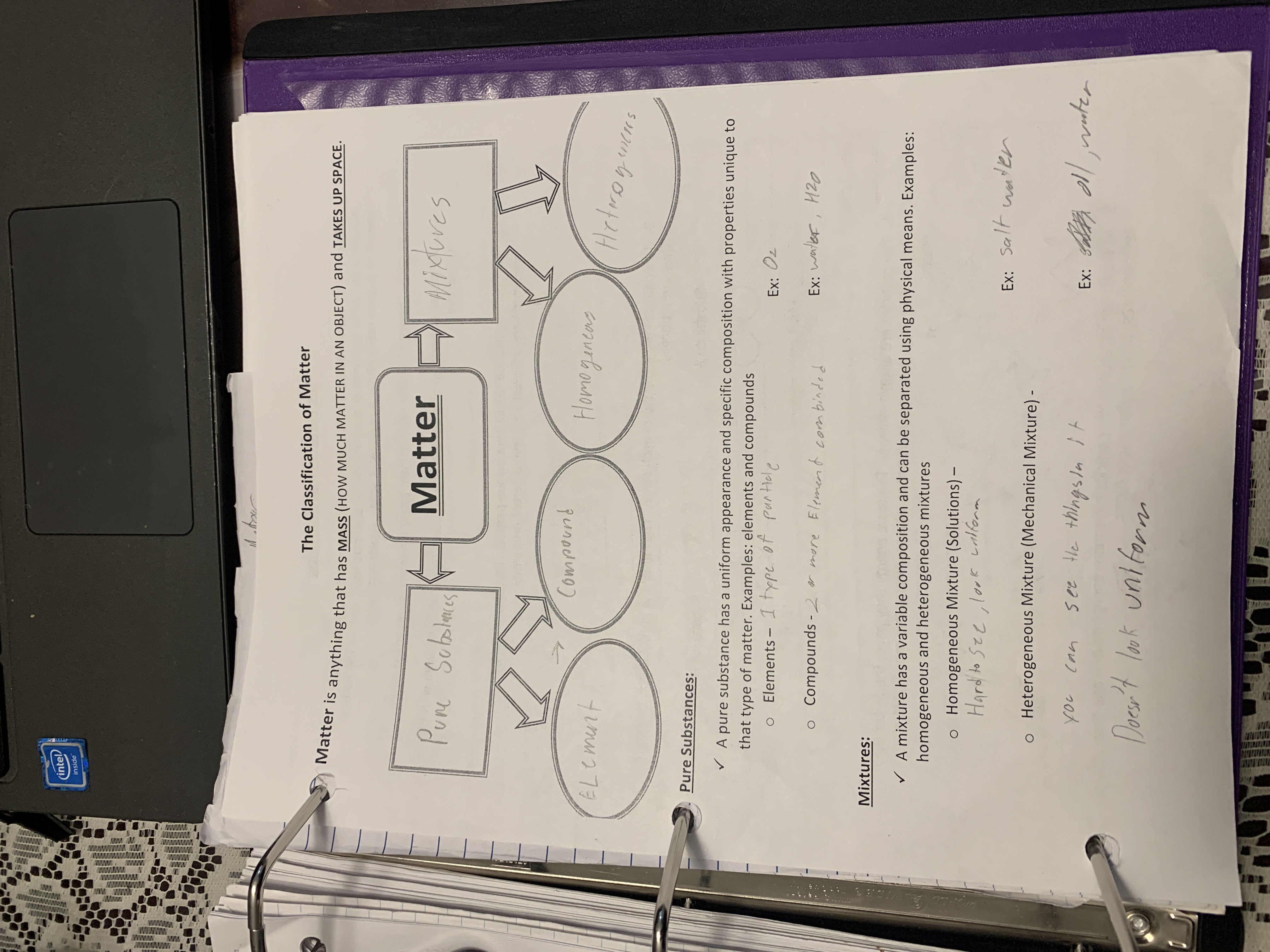What are the classifications of matter and the differences between pure substances and mixtures?

Understand the Problem
The question seems to relate to the classification of matter in chemistry, highlighting the differences between pure substances and mixtures, including elements, compounds, homogeneous mixtures, and heterogeneous mixtures.
Answer
Matter is classified into pure substances (elements, compounds) and mixtures (homogeneous, heterogeneous).
Matter is classified into pure substances and mixtures. Pure substances have fixed compositions and are divided into elements and compounds. Mixtures have variable compositions and are categorized into homogeneous (uniform) and heterogeneous (non-uniform) mixtures.
Answer for screen readers
Matter is classified into pure substances and mixtures. Pure substances have fixed compositions and are divided into elements and compounds. Mixtures have variable compositions and are categorized into homogeneous (uniform) and heterogeneous (non-uniform) mixtures.
More Information
Pure substances include elements (single type of atom) and compounds (combinations of elements in fixed proportions), such as oxygen (O2) and water (H2O). Mixtures can be homogeneous, where components are evenly distributed (like salt water), or heterogeneous, where components are visible and not uniform (like oil and water).
Tips
A common mistake is confusing compounds with mixtures. Remember, compounds have fixed ratios and properties, while mixtures do not.
Sources
- Classification of Matter - Chemistry LibreTexts - chem.libretexts.org
- Definition, Examples, Difference between Pure Substance & Mixture - byjus.com
AI-generated content may contain errors. Please verify critical information